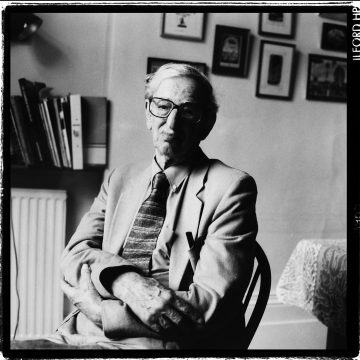 Corey Robin in The New Yorker:
Corey Robin in The New Yorker:
A sinking economy and rising fascism led the bookish teen-ager to communism. Hobsbawm began organizing against the Nazis and struggling through Marx. (When he was seventeen, he ruefully noted that he hadn’t read enough Marx; by this time, Evans observes, he had consumed the first volume of “Capital,” “The Poverty of Philosophy,” “The Eighteenth Brumaire of Louis Napoleon,” and “The Civil War in France.”) Once the Nazis came to power, he moved to Britain. After receiving his undergraduate and graduate degrees from Cambridge and securing a teaching position at Birkbeck College, he came to lead a charmed life in London, where he attended parties hosted by the theatre critic Kenneth Tynan that featured A. J. Ayer, Robin Blackburn, and Liza Minnelli.
But “Interesting Times” has a second, unintended meaning. Hobsbawm was obsessed with boredom; his experience of it appears at least twenty-seven times in Evans’s biography. Were it not for Marx, Hobsbawm tells us, in a book of essays, he never would “have developed any special interest in history.” The subject was too dull. The British writer Adam Phillips describes boredom as “that state of suspended anticipation in which things are started and nothing begins.” More than a wish for excitement, boredom contains a longing for narrative, for engagement that warrants attention to the world.
More here.
